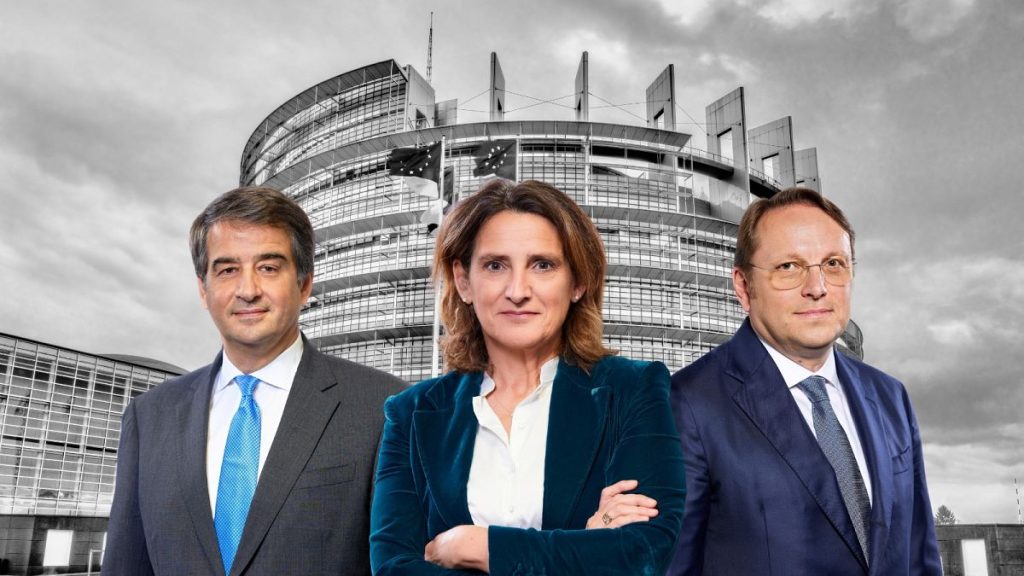The confirmation of Ursula von der Leyen’s new team of Commissioners has turned into a political drama, potentially delaying the start of the new EU executive. The confirmation hearings for the commissioners-designate led to backroom negotiations, exposing fractures and potential reform of the parliamentary majority that supported von der Leyen’s appointment. Party rivalries, strategic vetoes, and retaliations have led to a deadlock, postponing the final decision on the vice-presidents and one Commissioner, potentially delaying the start of the new EU executive.
The EPP has been working to strengthen ties with the ECR, aiming to secure a more right-leaning majority in the hemicycle, opposed by socialists, liberals, and greens who make up the current pro-EU majority. Commissioners-designate have been targeted, with certain portfolios facing criticisms to weaken them. National interests have also played a role, with Spain’s EPP delegation criticizing the response to recent floods in Valencia, diverting attention from conservative figures. Italian PM Giorgia Meloni challenged socialist opponents at home, accusing them of lobbying against Italian interests in the executive appointments.
Postponements of confirmation hearings have become a winning tactic, allowing parties to maintain leverage in negotiations. With commissioners-designate on hold, all parties are essentially back to square one, requiring a ‘package deal’ to approve key candidates simultaneously. Delaying the confirmation could lead to legal hindrances requiring unanimous approval, potentially rendering von der Leyen’s new EU executive ineffective. Breaking the deadlock has proven difficult, with von der Leyen intervening to try to find a resolution.
Despite the challenges, a compromise is likely as political groups aim to approve their own vice-president candidates and ensure von der Leyen’s second term can start on schedule. Potential compromises would involve concessions from all sides, with key candidates potentially seeing adjustments to their portfolios. The EPP holds a trump card in committee votes, requiring support from other parties for key candidates to be approved. The shifting dynamics within the EU are evident in the attempts to assemble a new right-wing majority that could replace the traditional centrist coalition that has ruled the hemicycle for over twenty years.
The current stand-off between parties highlights the potential rise of a new coalition within the EU, with EPP leader Manfred Weber seeking to assemble a right-wing majority. The groundwork for this potential shift is being laid, with the pro-European coalition that previously backed von der Leyen now facing fractures and challenges. The outcome of the negotiations and confirmation process will impact the future direction of the EU, signaling a potential shift towards a new political landscape within the European Parliament.













